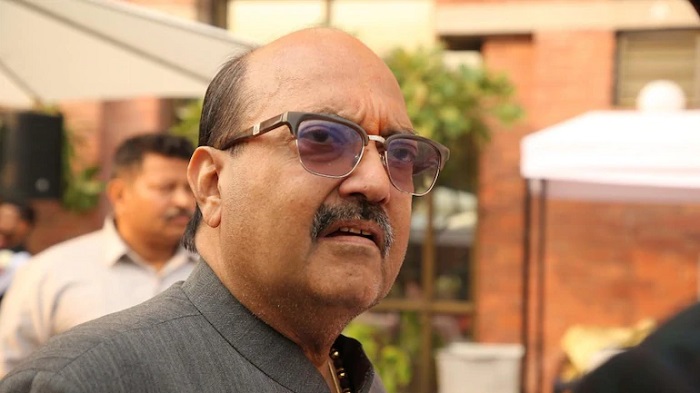New Delhi, Aug 5: Rajya Sabha on Monday approved a resolution abrogating Article 370 for Jammu and Kashmir and a bill to bifurcate the state into two union territories with home minister Amit Shah saying the controversial provisions were responsible for poverty and lack of development in the state.
Allaying opposition fears of all hell breaking loose after the move, Shah replied, "nothing will happen" and it won't be allowed to turn into another battle-torn Kosovo.
"It was heaven on earth and will remain so," he said replying to the debate on the resolution and the bill which were taken up together.
He said full statehood will be restored to Jammu and Kashmir at "appropriate time" and after "normalcy" returns.
The bill provides for bifurcation of the state into two union territories of Jammu and Kashmir and Ladakh.
"Article 370 is biggest hurdle to normalcy in the state," he said, adding his government was committed to making Jammu and Kashmir the most developed state in the country.
Terrorism, he said, cannot be eliminated from the state until Article 370 and 35A are in existence.
The two articles of the Constitution, which give Jammu and Kashmir a special status and does not allow all laws of India to be applicable to the state, have hindered development and breeded corruption, he said.
Shah said rule of three families in the state during their 70 years since independence did not allow democracy to percolate and it breeded corruption.
Article 370 ruined Jammu and Kashmir and is responsible for poverty in the state, he said.
This, despite Rs 14,255 per capita being allocated to J&K as against Rs 3,681 per capita national average, he said.
Insisting development was being stalled in the state because of Article 370, he said real estate prices haven't moved in sync with national average.
Tourism did not develop in the state because of restrictions on purchase of land for outsiders, he said, adding that no industry can be set up in J&K because of Article 370.
Healthcare is crippling in Jammu and Kashmir as no private hospital could be set up due to restrictions placed by Article 370 and 35A, he said.
"Similar is the situation for education. Right to Education, which guarantees children below a certain age, cannot be implemented in Kashmir. Why should valley children not get benefit of education," he asked.
After abrogation of Article 370, J&K will truly become an integral part of India, he said.
More than 41,400 people have been killed due to terrorism in Jammu and Kashmir. Whose policy is responsible for the deaths, he asked.
Shah said that Article 370 was a temporary provision and asked how long can a provision like that be allowed to continue.
Rajya Sabha also approved a bill to extend 10% reservation to economically weaker sections in the state as well as the resolution on abrogating Article 370 by voice vote.
TMC, which vehemently opposed the resolution, walked out before Shah began to reply to the debate on it.
However, the bill to bifurcate the state was approved by 125 votes in favour and 61 against it. One member abstained.
Opposition BSP, BJD, AIADMK and YSR-Congress voted in favour of the bill.






Comments
this time India will loose war badly...become we know when our lion soldier go to fight under the leadership of DOG M*D*...this is wat happen.
if india loose then hindu people must worry...there is no escape...muslim can go whereever country they want, but not in case of indian hindu..
This person and his team are the real terrorists. They went against the justice for the Kashmirians under the fact when they joined India.
According to the pact
Whenever the citizens of kashmir request for withdrawal from the country the government should arrange referendum
That is the choice of the people
What majority likes they should be given independence
Now nobody wants to respect the pact.
So the instability started for their right.
Now the BJP wants denay their rights
So real terrorisom can not be ruled out.
Got help the truth to reign.
Add new comment